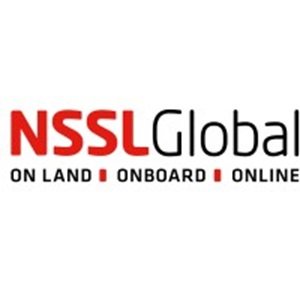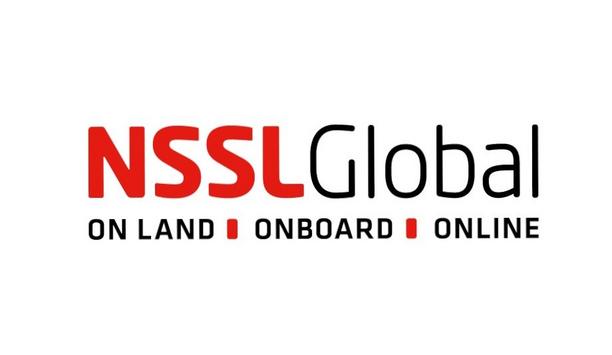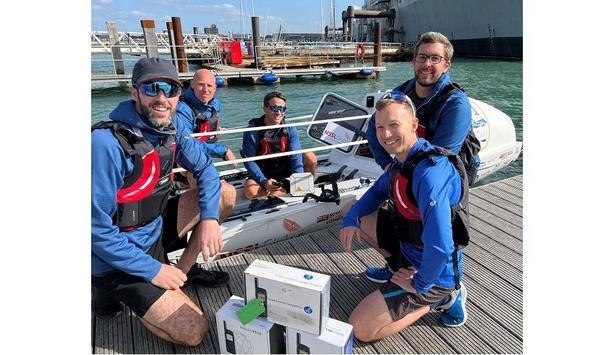NSSLGlobal - Experts & Thought Leaders
Latest NSSLGlobal news & announcements
In September 2023, NSSLGlobal, a global independent satcom and IT solutions provider, was awarded a contract with the UK Ministry of Defence (UK MOD) to provide comprehensive support for Maritime Multi-Media (MMM) services across the Royal Navy fleet. This strategic partnership aims to enhance the welfare services available to Royal Navy personnel by providing a wide range of entertainment on board vessels. Such welfare services are increasingly important in recruiting and retaining sailors. Design, support, and maintenance NSSLGlobal assumed responsibility for the design, support, and maintenance of crew Wi-Fi, as well as the upkeep of the fleet's TV systems, encompassing TVRO antennas and Ships Recreational Equipment (SRE). Since taking on the contract NSSLGlobal has installed new TV systems on five ships, completed over 200 support cases to improve services, and conducted over 70 global repair and maintenance activities. End-to-end welfare solutions NSSLGlobal provides round-the-clock support, conducts global repairs, ensures security and safety compliance The contract solidifies NSSLGlobal's position as a trusted partner to the Royal Navy and reinforces its commitment to delivering exceptional end-to-end welfare solutions. It also follows the company's outstanding track record and successful collaborations with the Royal Navy and Defence Digital through its longstanding Skynet and Ship Alongside System (SAS) contracts. Under the terms of the multi-year contract, NSSLGlobal provides round-the-clock support, conducts global repairs, ensures security and safety compliance, and looks to introduce cutting-edge technologies to continually enhance the welfare services available to the Royal Navy fleet. MMM services "NSSLGlobal has been serving the Royal Navy since 1982, and we are delighted by the continued confidence the MOD has in our expertise and capabilities," said Sally-Anne Ray, Group CEO, of NSSLGlobal. Sally-Anne Ray adds, "The first year of this new agreement coincides with a significant drive from the MOD to improve crew wellbeing and underscores our deep commitment to supporting the Royal Navy's welfare services. We look forward to delivering exceptional MMM services to the Royal Navy and ensuring their connectivity needs are met seamlessly." Reliable wi-fi connectivity John Clapp, Project Manager, MOD Defence Digital, said, "NSSLGlobal has demonstrated a proven track record in delivering reliable and edge solutions to the Royal Navy." John Clapp adds, "As we endeavour to deliver enhanced living and working environments to our sailors while they are at sea, this partnership will ensure that our personnel receives the highest standard of welfare services, including reliable wi-fi connectivity and entertainment options. We look forward to working closely with NSSLGlobal over the coming years."
NSSLGlobal, an independent full-service project engineering, Satcom, and systems integrator, is celebrating its 55th anniversary, marking more than half a century of developing innovative technology solutions for the government and maritime mobility markets. Satellite solutions Established in 1969, NSSLGlobal has a proud heritage of providing best-in-class satellite solutions. NSSLGlobal’s ongoing commitment to innovation and helping customers solve their communication challenges wherever they are in the world; at sea, on land, or in the air, has earned the company prestigious clients, including the UK Ministry of Defence, the German Armed Forces, and other NATO organisations to some of the largest commercial maritime companies such as Mitsui O.S.K. Lines (MOL) and Teekay. Practical, cost-effective solutions NSSLGlobal’s R&D efforts are at the cutting edge, developing innovative technology and equipment NSSLGlobal has built a strong reputation as a technology-agnostic world-class solutions house, having partnered with the world’s largest MSS and VSAT satellite operators and manufacturers. The company remains committed to delivering practical, cost-effective, and forward-thinking solutions that meet the ongoing needs of its customers today and into the future. NSSLGlobal’s R&D efforts are at the cutting edge, developing innovative technology and equipment to cater to the evolving demands of customers in an increasingly digitalised world. Awareness of societal issues Meeting the data-hungry needs of vessels and defence organisations, NSSLGlobal also supports and sponsors the endeavours of individuals, such as the successful summit of Mt Everest by double above-the-knee amputee, Hari Budha Magar (former Gurkha) to overcome personal challenges, while raising awareness of societal issues around disability and the environment. Headquartered in the UK, NSSLGlobal has more than 250 staff with offices globally in Germany, Sweden, Denmark, Poland, the Netherlands, Norway, Singapore, and the USA. Agile and innovative Sally-Anne Ray, CEO, of NSSLGlobal, said, "At NSSLGlobal we never stand still. Over the last 55 years, we have consistently proven ourselves to be agile and innovative, which has enabled us to meet the changing needs of our customers." Sally-Anne Ray adds, "We’re immensely proud of what we have achieved during this time and everyone who has been on this journey with us has contributed to our status as an engineering powerhouse, with a laser focus on customer service. We are excited about the future and remain committed to innovating and providing our customers with the pioneering-edge solutions and services they have come to expect. We can’t wait to see what the next 55 years hold."
NSSLGlobal is proud to announce its ongoing partnership and Gold sponsorship of the HMS Oardacious rowing team as they once again take on the formidable World’s Toughest Row Atlantic Challenge in 2023. Connectivity services NSSLGlobal will provide crucial connectivity services, airtime, equipment, and essential 24/7 support to ensure the team's successful journey as they row an impressive 3,000 miles across the North Atlantic. This partnership continues to exemplify NSSLGlobal's commitment to the team's mission of supporting charitable causes, including the Royal Navy and Royal Marines Charity (RNRMC), inspiring STEM education outreach programs, and advocating for mental health awareness. Royal Navy Submariner team HMS Oardacious was first formed in 2019 and became the fastest military team in history to row the Atlantic The Royal Navy submariner team, known as HMS Oardacious, was first formed in 2019 and became the fastest military team in history to row the Atlantic. This success was repeated in 2022, raising hundreds of thousands of pounds in support of mental health initiatives. 2023 sees the team’s first five-crew line-up, consisting of: Commander Matt Main, Commander Dan Seager, Commander Mike Forrester, Lieutenant Rob Clarke, and Petty Officer Ian Allan. Robust communications solutions For the crew, having continuous 24/7 connectivity is imperative for weather monitoring, navigation, safety, and welfare. Due to extensive experience working with maritime users and the HMS Oardacious crew, NSSLGlobal can provide personalised support, ensuring they remain connected with loved ones, are safe, and can access essential daily route updates. The availability of robust communications solutions throughout their voyage also allows the crew to share their journey on social media and with media outlets, helping to generate contributions to their charitable causes. 2023 World’s Toughest Row Atlantic Challenge In 2022, HMS Oardacious completed the event in 35 days, two days faster than their previous record The 2023 World’s Toughest Row Atlantic Challenge will commence in early December, with teams departing from La Gomera in the Canary Islands to take on a gruelling voyage across the Atlantic Ocean, ultimately reaching their destination in Antigua. The arduous 3,000-mile journey takes on average around 40 days, subjecting participants to intense physical and mental challenges. Notably, in 2022, HMS Oardacious completed the event in 35 days, two days faster than their previous record in January 2020. Raising funds and awareness Sally-Anne Ray, Group CEO, of NSSLGlobal, expressed her pride in supporting the HMS Oardacious team and said, "Supporting the team as they once again take on the Atlantic Challenge is a privilege for NSSLGlobal." "Rob, Matt, Dan, Mike, and Ian are pushing themselves to the absolute limit of their endurance, across thousands of miles. They are an inspiration to all of us and are set to endure long, challenging nights at seas while raising funds and awareness for incredibly worthwhile causes." Essential communications support We appreciate the vital role of the RNRMC in providing well-being support to serving personnel" "Many of the NSSLGlobal team have served in the armed forces, and so we appreciate the vital role of the RNRMC in providing wellbeing support to serving personnel, veterans, and their families." "We are proud to provide essential communications support to the team and wish them the best of luck in their journey across the North Atlantic." Safety and wellbeing Commander Mike Forrester, from HMS Oardacious, added, "We are delighted to once again be supported by NSSLGlobal as our communications sponsor. The crew will greatly benefit from their services. This support takes a huge burden off our shoulders, the quality of communications, technology, equipment, and airtime are vital to our safety and well-being." "From NSSLGlobal’s previous support, we know how genuinely concerned for our safety and well-being they are. Our families especially will be reassured by being able to talk to us and seeing pictures of us eating endless packets of dried food!"
Insights & Opinions from thought leaders at NSSLGlobal
Seafaring is often deemed a ‘risky occupation’ when it comes to both physical and mental health, involving highly demanding work alongside long working hours, often poor social support, and extended periods at sea. In the Sailors Society’s recent 2022 Cadet Report, they found 57% of Generation Z, those born between 1996-2010, cadets from around the world had submitted scores suggesting anxiety, and that most believed loneliness would be the main cause of any mental health issues they faced. 79.5% also said their choice of shipping company would depend on how it treats seafarers. Seafarer well-being The need for improved seafarer well-being has led to the UK government’s allocation of £2.4 million for projects supporting seafarers’ mental health, maritime skills, diversity, and careers. This investment has been made following the Maritime 2050 report, which highlights that the high incidence of mental health conditions is primarily due to the pressures, nature, and isolation of working at sea and suggests changing technology be utilised to improve sea connectivity. Is LEO services the solution? Satellites have been imperative for both operational and welfare services, in addition to positioning and navigation Satellites have enabled communications at sea for over 50 years. They have been imperative for both operational and welfare services, in addition to positioning and navigation. Generally, communications for major maritime platforms have been provided by Geosynchronous Orbit (GEO) satellites, delivering a “broadband” style service from a few Kbps to multiple Mbps. However, Low Earth Orbit (LEO) satellites are not a new proposition. Early LEO satellites, such as the Soviet Sputnik 1 launched in 1957, provided low single-digit Kbps, while more recent Iridium NEXT satellites provide hundreds of Kbps of resilient service. New services Thanks to significant investments in ‘broadband’ high throughput LEO satellites, new services offering ‘fibre-like’ high-speed low-latency connectivity of about 100 Mbps have become available. These services enable high throughput at a reasonable cost and, if configured as part of a hybrid solution, allow for operational and welfare services to be separated. This protects welfare services for seafarers, offering more access to services like messaging and video communications, streaming platforms, and gaming. The importance of on-board connectivity The surge in demand for LEO connectivity reflects growing expectations from seafarers, and better awareness from employers, around social well-being. With long periods of separation from families and friends and work that often involves high-risk situations, seafaring can lead to a combination of anxiety, stress, and isolation. A lack of access to mental health support services can contribute to depression and increases seafarers’ risk of unhealthy coping strategies resulting in serious personnel issues and retention difficulties. Addressing communication issue The survey highlighted that 63% would consider moving to another shipping company that offered better connectivity The seafarers’ trade union, Nautilus International, further demonstrated the importance of connectivity in 2017 when it published a survey showing that 80% of its members considered communications the second most important integral collective bargaining issue. It also highlighted that almost two-thirds (63%) would consider moving to another shipping company that offered better connectivity. Need for LEO services These demands have since been exacerbated. The COVID-19 pandemic saw many seafarers facing longer periods of isolation due to imposed restrictions and extended contracts, made worse for those unable to call or message their loved ones. Generation Z crews have also grown up accustomed to having instant access to connectivity and can be reluctant to accept a job that takes this away. Together, these forces have pushed the need for LEO services to the forefront of maritime considerations, as a viable solution that meets welfare and operational needs. The benefits of LEO services LEO services offer high throughput connectivity combined with low latency, allowing crew members to access Wi-Fi and download speeds similar to those provided by home broadband. This, in turn, provides numerous benefits for physical and mental well-being: Real-time communication: Personnel can stay in touch with their loved ones and support networks while at sea, helping to reduce feelings of isolation and loneliness. Mental health support: Improved access to support services allows crew members to connect with mental health professionals and receive support for conditions like depression, anxiety, and PTS. Enhanced safety: Better connectivity allows for real-time tracking and the monitoring of location, weather data, and emergency response services, which can help prevent accidents and ensure quick response times in the event of an emergency. Remote monitoring of seafarers' health and well-being through wearable technology can also be used to monitor vital signs and detect early indications of health issues. Training: LEO services provide potential for crews to engage in virtual training, which is especially useful in cases where members are at sea for extended periods. On-demand access to training resources allows crew members to develop their skills and knowledge at sea, encouraging career advancement. Virtual training also helps establish best practices that promote onboard safety. Overcome risks with a hybrid strategy The combination of LEO and VSAT services allows large quantities of data to be exchanged at broadband speeds Relying solely on LEO satellites is a risky strategy, putting operational priorities in conflict with crew welfare, as using data for one negatively impacts the data available to the other. To avoid this, LEO services can be paired with a guaranteed VSAT solution offering a committed information rate (CIR), to ensure mission-critical operations are not compromised and to protect the high-throughput connectivity most suited to provide well-being support services. The combination of LEO and VSAT services allows large quantities of data to be exchanged at broadband speeds, and enables real-time communications and remote monitoring for operational matters, all without affecting crew services. The key to choosing the right hybrid solution A vessel and the needs of its crew members must be considered before choosing a service. For instance, maritime operators need to consider whether they require a solution with built-in access to ports, as some network operators don’t manage regulatory access. Using such a solution in ports without pre-approval can lead to significant consequences. They also need to think about the operational conditions, ensuring their equipment has been built to withstand the environments it will be used in. Additionally, a CIR is crucial for most professional-grade operations, ensuring connectivity for operational and welfare purposes is never compromised. Resilience, support, and assurance Emerging LEO constellations provide new options for maritime operators that enable operational efficiencies When delivered with the right resilience, support, and assurance and fused with a network service that guarantees connectivity emerging LEO constellations provide new options for maritime operators that enable operational efficiencies, increased safety, and security, greatly improved on-board morale, and support longer-term retention. This means they can invest in both their crew and long-term planning. Safety and career advancement Officers and crew will be able to see that they are working for an employer that cares about their welfare. Contact with home will only be restricted when operational tasks dictate, rather than because the vessel doesn’t have the bandwidth. Seafarers will also have the ability to catch up on entertainment, access social media, video and voice calling, and remote training that promotes safety and career advancement.







